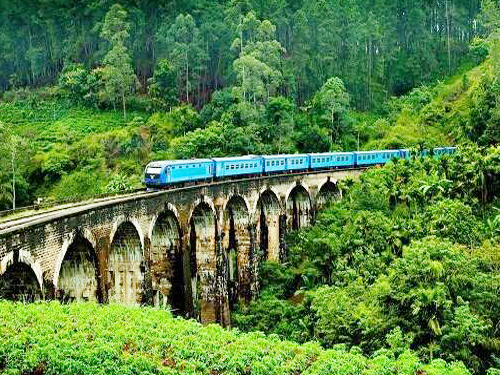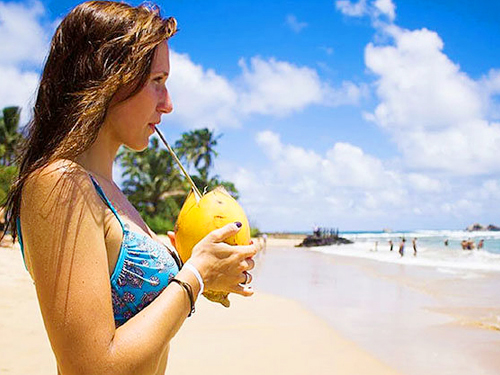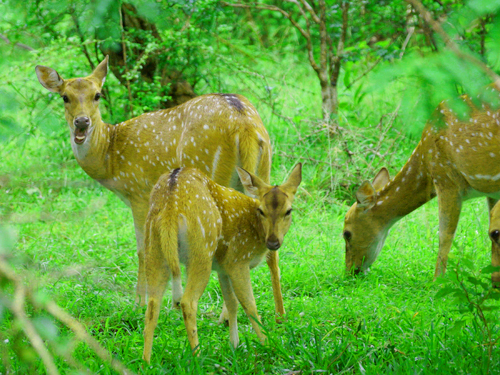Main Dive areas in Sri Lanka
Towards the focal point of the west coast, Kalpitiya sits on a long, slender shoal, isolated from the central area by a tidal pond. While the town seems like the 'place that time neglected', there are some superb shallow plunge locales simply seaward including some great full-scale photography subjects on rough reefs
An hour and a half drive north of Colombo on the west coast, Negombo ocean side offers admittance to vivid inshore reefs abounding with fish, as well as the seaward reefs of Final Frontier. There are numerous well known makes a plunge this region, including Barracuda Point, Derana Gala, and the leftovers of a WWII warrior airplane
Colombo offers access to the best wreck diving in Sri Lanka, with a dozen wrecks ranging in depth from 98 to 187ft (30 to 57m). There are also excellent reef sites around Colombo, such as Taprobane Reefs and the beautiful Gorgonian Gardens
More profound seaward locales including solid flows carry colossal sandbars of fish toward the west coast Beruwala destinations. Highlighting heavenly stone developments in fantastic permeability, this is an emotional objective reasonable for more experienced jumpers
Albeit little, this west coast town is upmarket, with extravagant resorts spread along the ocean front and a central avenue of shops and decent cafés. There is a scope of plunge locales of shifting profundity close to a little ways from shore. Intriguing
Popular for a large number of miles of brilliant sandy sea shores, Unawatuna offers superb west coast plunging with many wrecks and a few rough developments shrouded in dark coral. This is perhaps the best spot to experience Napoleon wrasse routinely
On the east coast, Kalmunai is home to two huge WWII wrecks, the SS Athelstane and HMS Hollyhock. The two wrecks lie in 138ft (42m) of water, are inconceivably beautiful, and shrouded throughout everyday life. A third wreck, the MV Ledra, is much shallower yet has less to propose than the others
The easternmost town in Sri Lanka, Batticaloa is a thrilling town offering invigorating plunging. The feature of a plunge trip here must be the HMS Hermes, notwithstanding, there are a few other great wreck and reef jumps near shore that are shrouded in stupendous corals and wipes and abounding with huge sandbars of rainbow sprinters, fusilier, and sweetlips
The second-biggest regular harbor on the planet, the old east coast port of Trincomalee is covered with wrecks as well as the remaining parts of a few Japanese Zero contenders and British Hurricanes - setbacks from WWII. There are additionally various reef jumps here including Eel Rock (home to something like five types of moray eel), Black Tip Rock (where around 20 reef sharks accumulate every morning), and White Rock
Divers investigating Sri Lanka will find animals of all shapes and sizes in the island's reasonable waters. Indian Ocean species flourish, with sweet lips, clownfish, triggerfish, and batfish living on beautiful reefs decorated in an interwoven of delicate coral. Watching the reefs and dividers, jumpers can hope to experience barracuda, goliath grouper, humphead parrotfish, and Napoleon wrasse, while enormous schools of jack and trevally circle barely out in the blue. Include bird and bull beams, a few assortments of moray eel, and several types of turtle, and the reefs are continually conveying energizing experiences and incredible photograph open doors
Water temperature: 80-86oF (27-30oC) year-round, with the highest temperatures in April and November
Visibility: Up to 100ft (30m), but can be affected by plankton blooms.
Depth Range: 32-131+ft (10-40+m).
Diving Difficulty: Suitable for all abilities, including technical.
Diving is conceivable in Sri Lanka all year, with seaside locales appreciating normal air temperatures of 77-86oF (25-30oC). Throughout the late spring, a very long time of May to September, the east and north drifts appreciate dry, bright days while the west and southwest drifts are hit by a downpour. Over the cold weather a long time from October to February, the seasons invert, with the west and southwest plunge locales great for jumping while the east and north areas experience the rainstorm.
December to mid-April is top traveler season and the southwest of the island can become occupied

 Safe Travels
Safe Travels Français
Français Deutsch
Deutsch עִברִית
עִברִית Italiano
Italiano Nederlands
Nederlands Polski
Polski Pусский
Pусский Español
Español













































